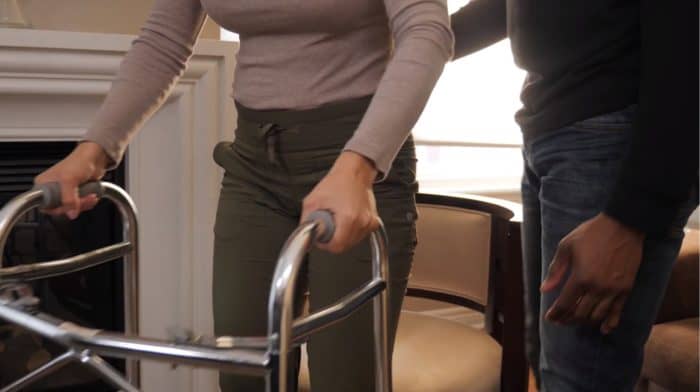How To Prevent Someone From Going Missing
More than half a million Canadians are currently living with dementia, and you may be surprised to learn that six out of ten of them will go missing at some point. This means that if you’re caring for someone with dementia, there’s a sixty-percent chance that they will go missing too. In this video, we’ll give you some tips on how to make a safety plan to use in the event that the person you’re caring for goes missing
More than half a million Canadians are currently living with dementia, and you may be surprised to learn that six out of ten of them will go missing at some point.
This means that if you’re caring for someone with dementia, there’s a sixty-percent chance that they will go missing too.
In this video, we’ll give you some tips on how to make a safety plan to use in the event that the person you’re caring for goes missing.
The first thing you should do when making a safety plan is sit down with the person you’re caring for and talk about strategies that will help keep them safe in the community.
Go over some of the buildings and landmarks in the area that are easy to identify and okay to wait at if they get lost.
Emphasize that it’s always better to walk with a buddy, and discuss the idea of using a GPS location app to make it easier for you to keep track of them.
Once you’ve talked about your safety plan with the person you’re caring for, there are several practical steps you can take to help make it easier to locate them if they go missing.
Start by writing their name, address, and your own contact info onto small slips of paper and placing them in the pockets of all their jackets and coats.
Next, take a current picture of them and keep copies on your phone, on the fridge, and in your wallet or purse. Give your neighbours copies of this photo as well, along with your contact info and any other important details about the person you’re caring for.
It’s also a good idea to write down a list of the places that the person you’re caring for is most likely to go if they get lost; some examples might include their favourite coffee shop or store, a former home address, or a previous workplace. Use the phonebook or an online search engine to find the address and phone number of each of these locations, and keep the list in a safe, easily accessible place in your home.
If the person you’re caring for does go missing, call 911 immediately. Give the police a copy of their photo, as well any information that might help the search. This could include physical traits, medications they’re currently taking, and the places you think they might have gone.
You should also let the police know if they’re part of a registry program like MedicAlert® Safely Home®, which provides members with a bracelet that makes them easy to identify as a person with dementia.
As the person you’re caring for’s dementia progresses, you should try to review your safety plan every few months and make changes based on their needs and capabilities.
Remember, it’s never too early to sit down with the person you’re caring for and discuss how they can stay safe in the community.
For more information on living with dementia, contact your local Alzheimer Society or check out our dementia Care Guide.






